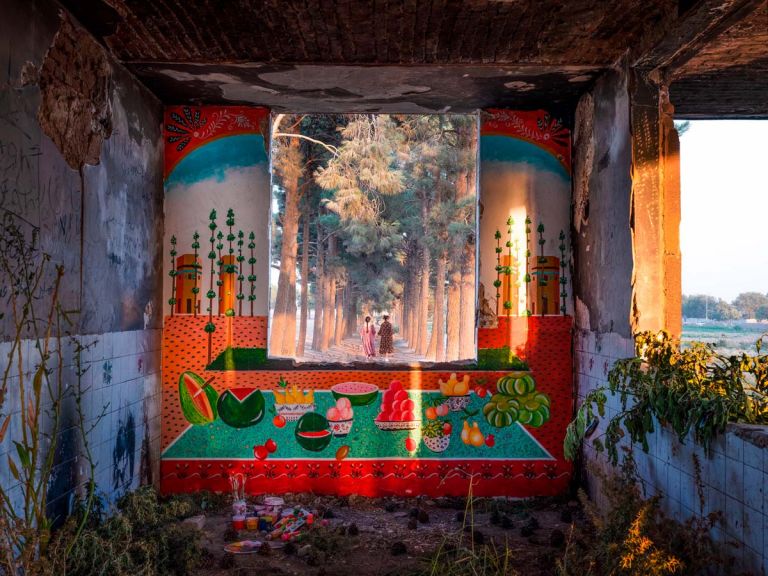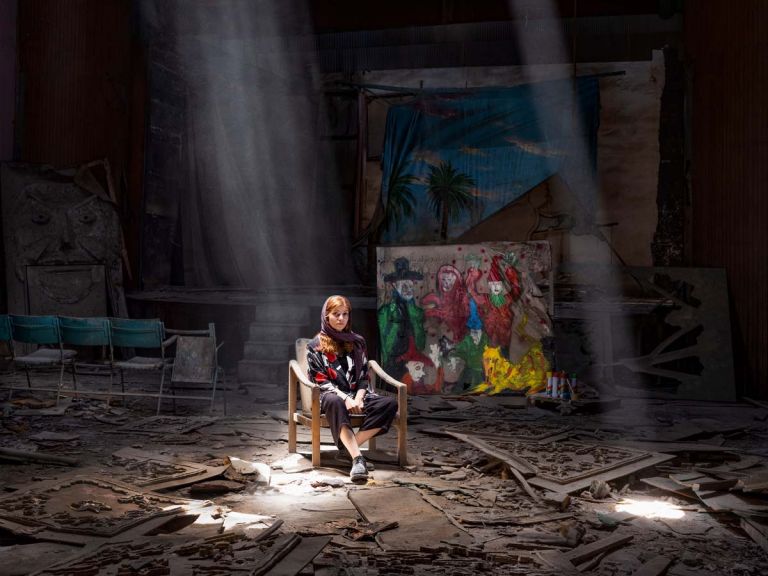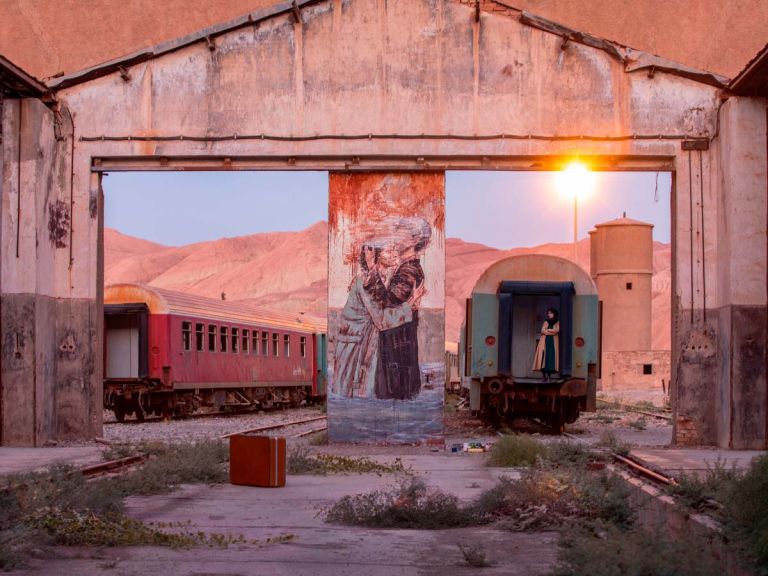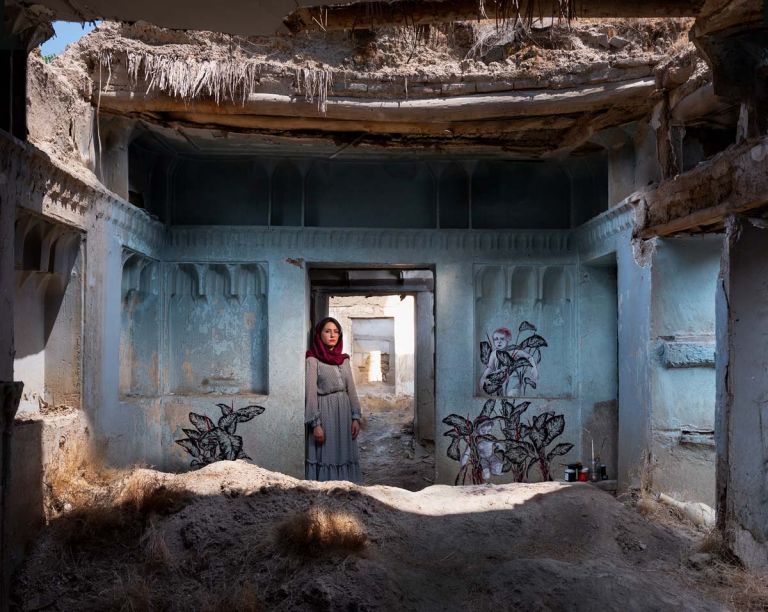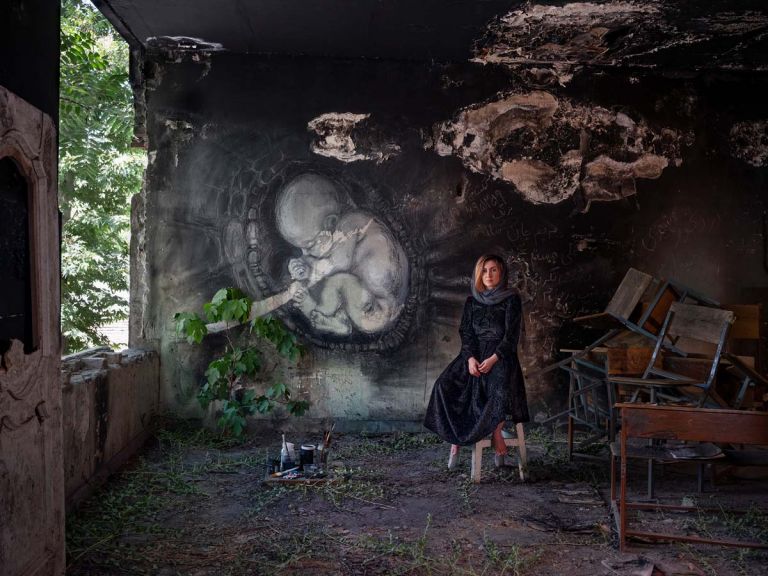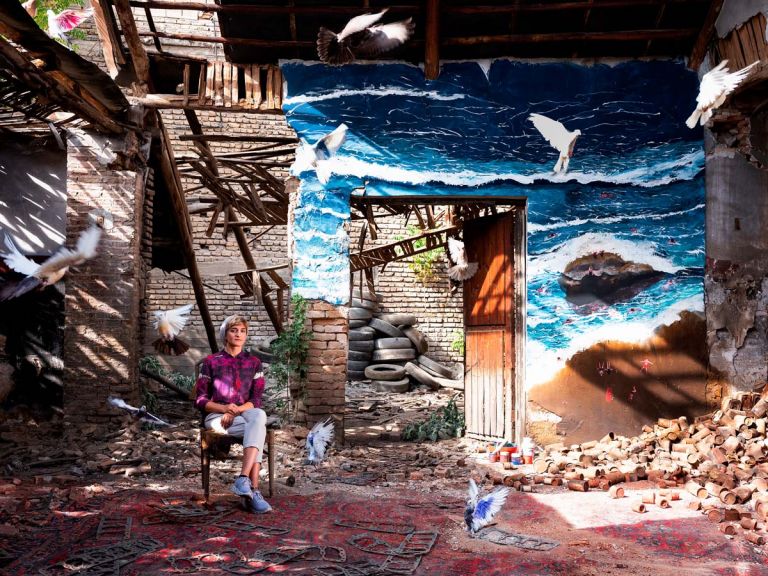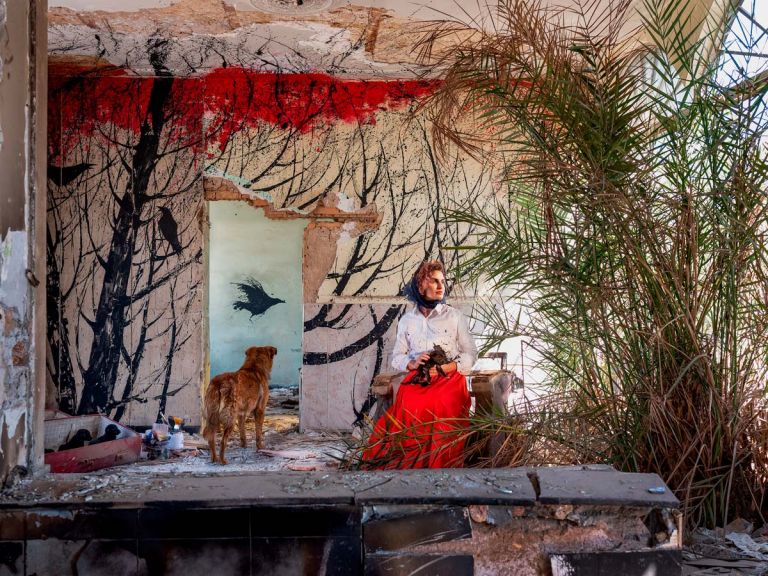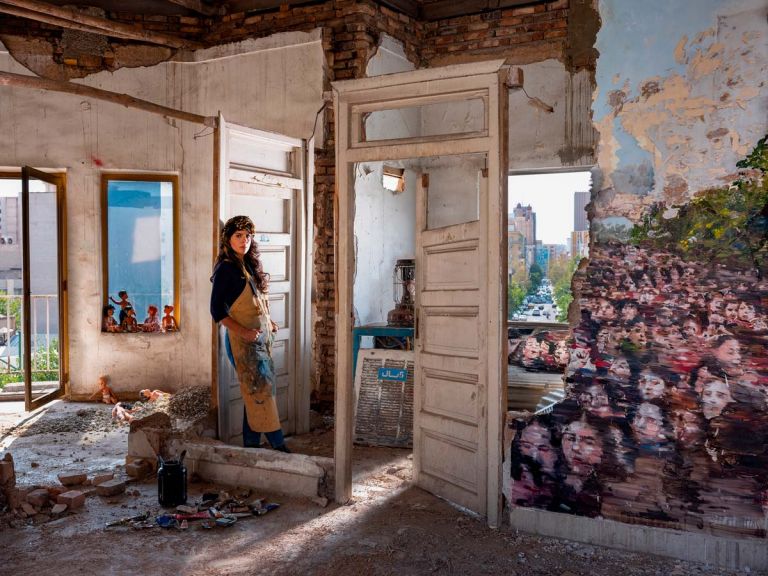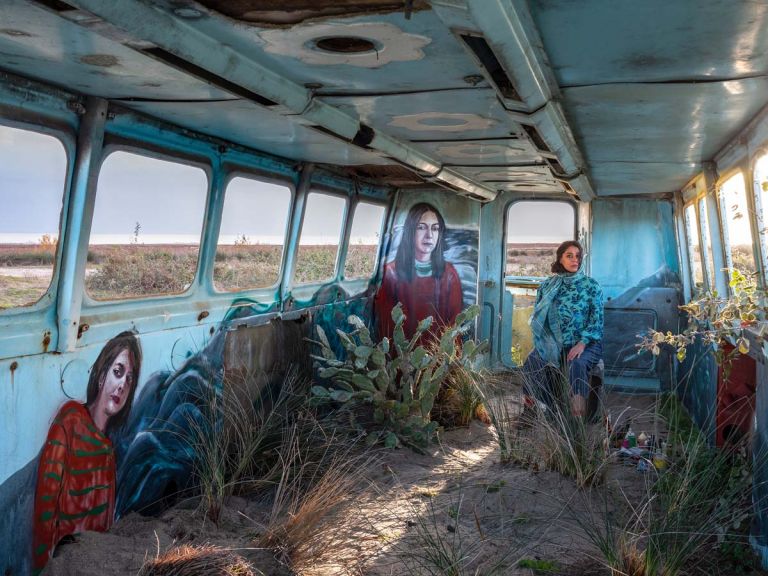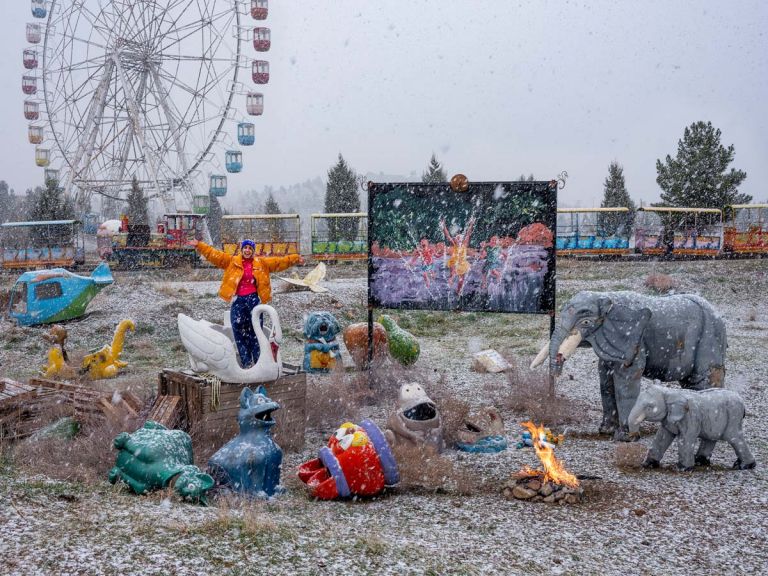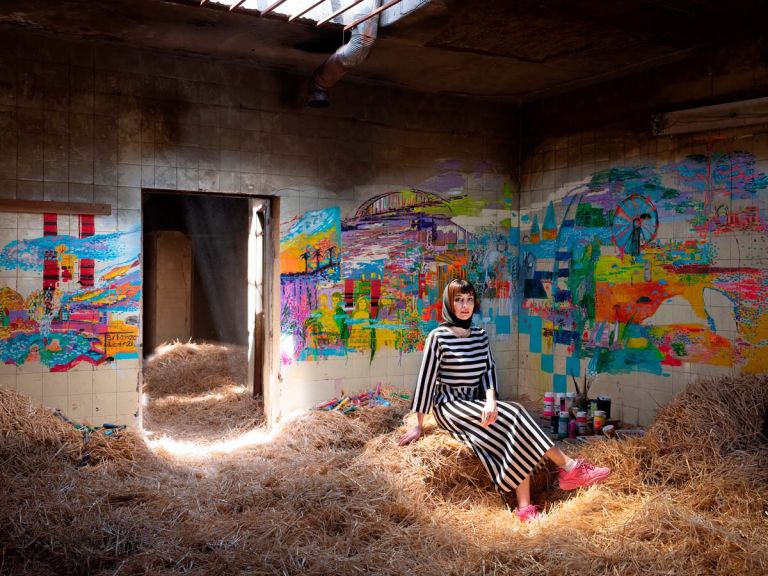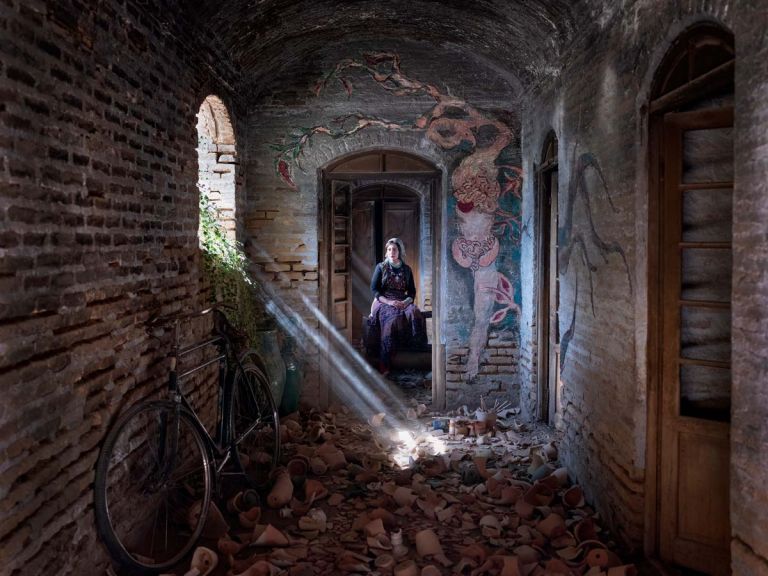Maryam Firuzi, Iran
Maryam Firuzi, born 1986 in Shiraz, Iran. Faithful visitors of our award ceremony will already know her, because she has received an award before, in 2018, for her work about reading women. Read! If people would read more, Firuzi says, especially if they read mainly poems, the world might be a more peaceful, a better world. Because reading can make you more tolerant, can create empathy for others, an understanding of lives beyond your own.
Maryam Firuzi engaged early in literature and painting, later in Persian calligraphy. She holds a diploma in mathematics, a bachelor in software engineering. She studied at the art school in Teheran and has a master degree in cinema and film studies. In one film she traced the influence of Ginsberg’s poems on young people in Iran during the Islamic Revolution. She is particularly interested in freedom and the voices of women in society. The struggle for the right of women to move freely.
Maryam Firuzi has given the work that we honour here a very enigmatic title. Are memories of the future possible? Does it mean that the past will repeat itself? And does that mean gloom, a return to painful experiences?
One thing is clear: Maryam Firuzi is a voice of the women in Iran. And she was that even before the courageous rebellion of mainly young Iranian women against the power of the so-called moral police, who dictate to women how to dress and behave according to the views of an outdated male regime.
A country at the edge of a revolt, more in a latent war than at peace – but what do we look at in the highly poetic work of Maryam Firuzi? We look at a photo project born of a deep melancholy of its author: She herself writes of sadness and despair, of all kinds of crisis, political, economic, ecologic, of dreams of flight, of the pandemic. She describes herself as “destroyed space”. Accordingly she has made ruins the stage of her work.
But into these ruins she has put women and her artistic work, of whom she hopes for “salvation”. Inspiration and effect. Sahar Nahavandi, Sorahi Rafati, Pooneh Oshidari, Najmeh Kazazi, Raziyeh Iranpoor, Fateme Eslamian, Hejazi Sisiter ( Manijeh $ Parisa Hejazi), Zahra Shafei, Tarlan Tabar, Faxteh Shamsian, Ghazal Marvi, Soudeh Davoud – in abandoned schools we see them, in deserted train stations, garages. In the walls of former wine cellars, theatres, a bath house.
And all of it is one single plea for the power of women. For the power of these women to stay in the country despite everything. And not to be silent. And not to back down. This is about encouragement. About a sign of respect for those who still dream. And this has convinced the jury to honour this wonderful work by Maryam Firuzi as a call for peace.
Maryam Firuzi is the first person to receive a second award from us. We are very happy to congratulate her now for the second time! (Text by Peter-Matthias Gaede)
